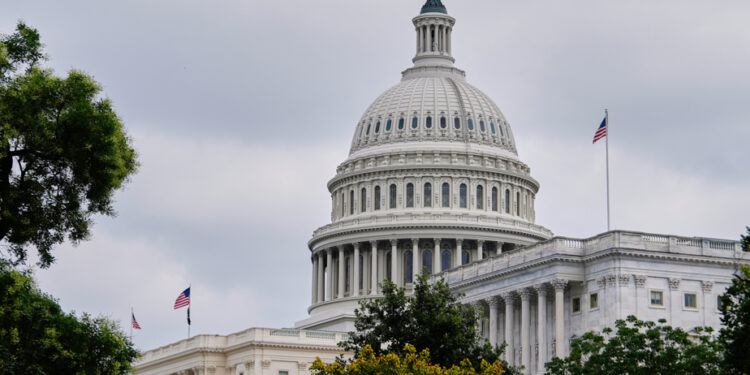(Washington) The House of Representatives of the United States has given its final agreement at the request of President Donald Trump to recover around 9 billion intended for public broadcasting and foreign aid early Friday.
This vote has marked the first time for decades that a president has succeeded in having such a request for budget cuts adopted by the congress, and the White House suggested that it would not be the last.
Some Republicans, uncomfortable with these compressions, nevertheless supported them, fearing to upset Mr. Trump or compromise his political program.
The House of Representatives adopted the bill to 216 votes to 213. He must now be submitted to Mr. Trump for signature.
The bill cancels approximately 1.1 billion for the Corporation for Public Broadcasting (CPB) and nearly 8 billion intended for various foreign aid programs.
“We must return to a healthy fiscal policy, and this is an important step,” said the chamber president Mike Johnson, an elected representative of Louisiana.
Opponents of this measure expressed their concerns not only about the programs targeted, but also about the fact that the congress gives up its expenditure powers to the executive, while investments approved on a Bipartisan basis have been canceled.
No democrat supported the measure when it was adopted by the Senate, by 51 votes against 48, early Thursday. The final adoption by the Chamber was delayed by several hours, the Republicans struggling with the response to give the pressure of the Democrats for a vote on the disclosure of Jeffrey Epstein’s files.
This attempt to recover part of the federal spending comes just a few weeks after the Republicans also had the Democrats’ support for the support of Trump’s law on tax reductions and the budget cuts without the support of the Democrats.
The congress budget office estimated that this measure would increase American debt by around 3300 billion in the next decade.
“No one believes that the Republicans really try to reduce unnecessary spending,” said the Democratic leader in the House, Hakeem Jeffries.
A blow for the CPB
The abolition of 1.1 billion intended for the CPB represents all of the funds due to it in the next two budgetary years.
The White House believes that the public media system is politically biased and represents an unnecessary expenditure.
Photo Saul Loeb, Agency Archives France-Presse
The company distributes more than two thirds of these funds to more than 1,500 television channels and local public radio stations, the rest being mainly allocated to the National Radio Public and the Public Broadcasting Service.
Democrats have failed to restore funding in the Senate.
The legislators representing many rural constituencies have expressed their concern about the consequences that these budget cuts may have on certain local public chains of their state.
Cups in foreign aid
Among the cuts in foreign aid, there are 800 million for a program which provides emergency shelters, water and family reunification services to refugees.
A 496 million slice aimed to provide food, water and health care to countries affected by natural disasters and conflicts.
There is also a reduction of 4.15 billion for programs to stimulate democratic economies and institutions in developing countries.
Democrats argued that hostility from the republican administration with regard to foreign aid programs would harm the position of the United States in the world and create a void that China would not fail to fill.
The White House has rather pleaded that many of these cuts would encourage other countries to mobilize more to respond to humanitarian crises and that these suppressions were best used for the interests of American taxpayers.



